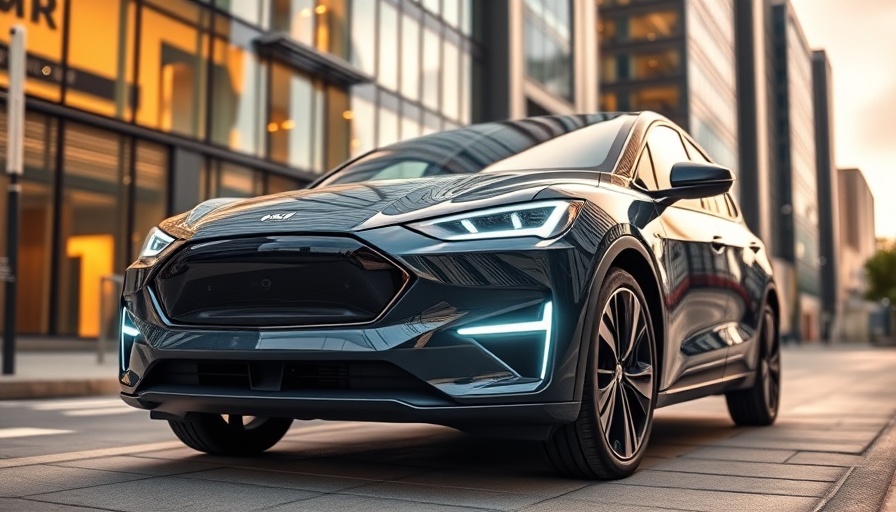
The Electric Vehicle Revolution is Here: Why It's Unstoppable
This month, we've witnessed major advancements in the electric vehicle (EV) movement, signaling a shift that many experts deem unstoppable. With billion-dollar investments from General Motors (GM) and Ford, as well as the revival of infrastructure to support public charging stations, the future of mobility is electrifying.
Two Heavyweights Join Forces in EV Production
Despite recent setbacks, such as the loss of the $7,500 EV tax credit, GM and Ford have stepped up to innovate and amplify their electric offerings. Ford announced its commitment to electrification with significant investments, bolstering its production capabilities to meet soaring demand for EVs. Meanwhile, GM shared its plans to produce the updated Chevrolet Bolt EV, projected to have a target price around $30,000, aiming to make electric driving accessible for many.
Why EV Charging Stations Matter for Hospitality
As the EV movement gains momentum, the need for a supporting infrastructure becomes crucial, especially for specialists in boutique hospitality. Public charging stations open the door for EV travelers who seek accommodations that cater to their electric transportation needs. Predictably, hotels and eco-lodges equipped with charging stations are becoming increasingly appealing to eco-conscious guests.
Transforming Urban Landscapes with Sustainable Choices
The transition to electric vehicles ties into broader sustainability goals for urban planners and hospitality professionals. By embracing EVs and integrating solutions like off-grid solar technology, small-scale hotels can play a crucial role in reducing fossil fuel dependence while appealing to a new demographic of travelers who prioritize eco-friendly choices. For instance, urban farming initiatives enhanced by electric logistics can also support local economies while attracting green-minded guests.
The Economic Implications of EV Adoption
The growth of the electric vehicle market is not just an environmental narrative. This movement has significant economic implications as well. With traditional car manufacturers pivoting towards EV production, there's a growing job market focused on sustainable technologies. Initiatives such as corporate sustainability must align with these trends, making it a prime opportunity for boutique hospitality professionals to join the movement.
Stories of Change: How a Shift in Mobility Impacts Everyone
Everyone plays a part in these changes. The integration of electric vehicles into everyday life can enhance the human experience. Stay informed about how these developments affect not just the environment but also community health and local economies. By weaving in practices like utilizing paper wrappers or committing to zero-waste practices, eco-lodges not only increase their sustainability appeal but also actively contribute to a greener planet.
Final Thoughts on the Electric Vehicle Future
The signs are clear: the electric vehicle movement is not slowing down. Embracing this transformation presents a unique opportunity for professionals in hospitality and tourism. The journey towards sustainability goes beyond simply offering green amenities—it's about crafting experiences that resonate deeply with eco-conscious travelers.
If you operate a boutique hospitality business, now is the time to invest in sustainable practices. Equip your property with off-grid solar capabilities or install EV charging stations. These steps not only entice eco-aware guests but also contribute to a thriving sustainable future. Lead the way in making positive changes today!
 Add Row
Add Row  Add
Add 




Write A Comment